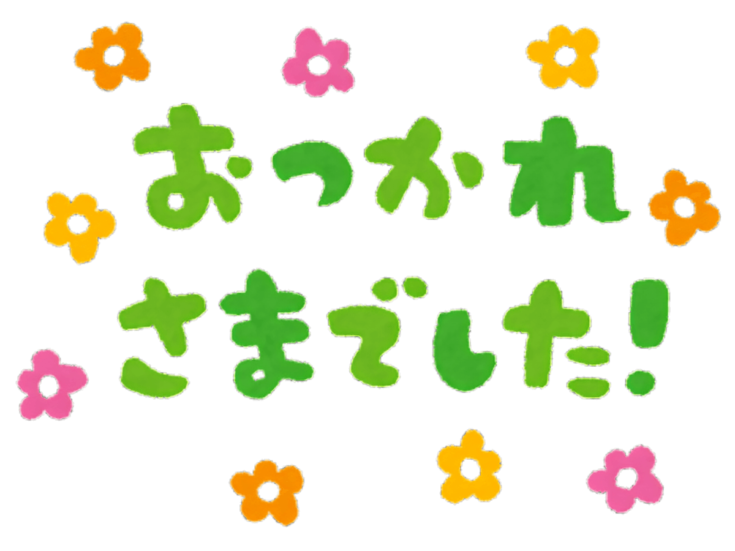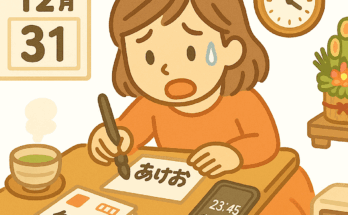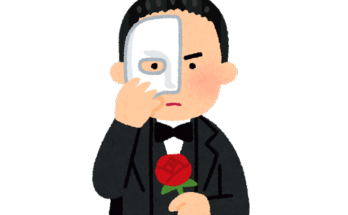In the previous article, I explained the phrase “よろしくお願いします (yoroshiku onegaishimasu)” . This time, I would like to talk about another frequently used term among Japanese people, one that you might find interesting and confusing: “おつかれさま (otsukaresama)”.
1) Origin of the Word
First, let’s examine the origins of the term “おつかれさま (otsukaresama).”
“お (O)”
This is a prefix that expresses politeness. In Japanese, “o” is often added.
“つかれ (Tsukare)”
This is a noun that means “tiredness” or “fatigue.”
“さま (Sama)”
This is an honorific suffix that conveys respect. Generally, this suffix is used to show respect or honor towards people or things.
Therefore, “otsukaresama” is a phrase used to express respect, empathy, and gratitude towards someone’s work.
2) Tense and Situation
Derived from “otsukaresama,” there are variations like “otsukare,” “otsukaresama desu,” and “otsukaresama deshita.” I summarized the changes depending on tense and situation in Table 1, so please check it out!
Table1: Variations by Tense and Situation
3) Detailed Explanation of Situations
As I mentioned, “Otsukaresama desu” has been used as a phrase of gratitude and appreciation towards someone’s work. From there, it has been adopted as a greeting for someone leaving work early or as a farewell phrase at the end of work.
Nowadays, its usage has expanded beyond its original meaning of acknowledging labor, extending to various situations. For instance, it can be used in place of “hello” when passing by a colleague in the hallway or at the beginning of a conversation, phone call, or email. Initially confined to workplace usage, it has expanded its meaning and function to places like schools, hobby groups, and community activities. Additionally, it’s even used in place of “cheers” when drinking at parties.

4) Usage of “Otsukaresama”
“Otsukare!” or “Otsukaresama” can be used anytime except for early in the morning regardless of tense. On the flip side, the polite form “Otsukaresama desu” changes to “Otsukaresama deshita” when referring to past events. If you wish to express an even more formal tone than “Otsukaresama desu” or “Otsukaresama deshita,” you can use “Otsukaresama de gozaimasu” or “Otsukaresama de gozaimashita.”
Please note that using this word at the beginning of a phone call or email is only appropriate within the company, as it carries a sense of camaraderie. For communication with clients or business partners, it’s better to use phrases like “itsumo osewa ni natte orimasu” (いつもお世話になっております), which translates roughly to “I am always being taken care of by you,” conveying gratitude and appreciation for their cooperation.
However, what about using it during recess of a training session with your client or after the session?
Here, “otsukaresama desu” or “otsukaresama deshita” is appropriate due to the sense of camaraderie from undergoing the training together.

Conclusion
As shown, the “otsukaresama” series of words has a wide range of applications, making it a versatile term. If I have to translate it into English, greetings like the following can be used:
Hey!
Hi!
Hello.
How are you?
Good afternoon.
What’s up?
How’s it going?
What’s going on?
Good job!
Well done!
You did solid work today!
Thank you for your hard work.
You must be tired.
It was hectic today, wasn’t it?
It was a madhouse, wasn’t it?
See you!
See ya!
Take care!
See you tomorrow.
See you on Monday.
Have a good day.
Have a good night.
Have a good weekend.
Cheers!
“Otsukaresama” and its variations might seem challenging at first due to the lack of a direct equivalent in English, but once you’ve learned them, they become like magic words that you can use in so many situations! We encourage you to start using them today.
Thank you for reading until the end. Otsukaresama deshita!

I live in Osaka and volunteer as a Japanese teacher. After I retire, I’d love to live in Malta in the Mediterranean or on Yakushima Island in Japan someday.





 HTJ has a YouTube page! Check it out
HTJ has a YouTube page! Check it out
Thank you for sharing this, Akiko! The conclusion was crazy! Who knew such a simple term could be used in so many different ways?? Thanks for teaching me!
Hi, Nathan! Thanks for leaving a message, and I always appreciate your kind comments when you announce new posts on Facebook. Japanese is very difficult, but I would be happy if my article could help someone.